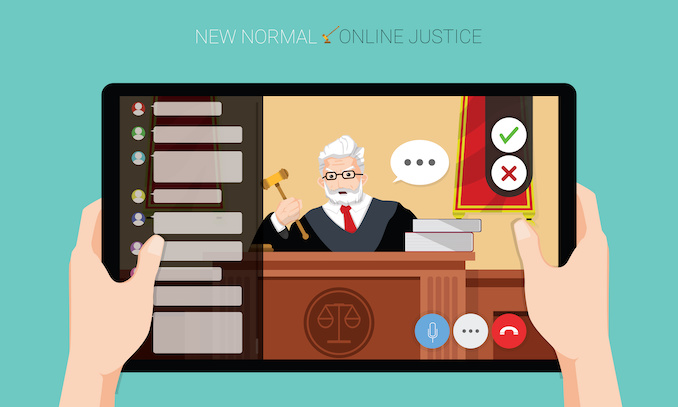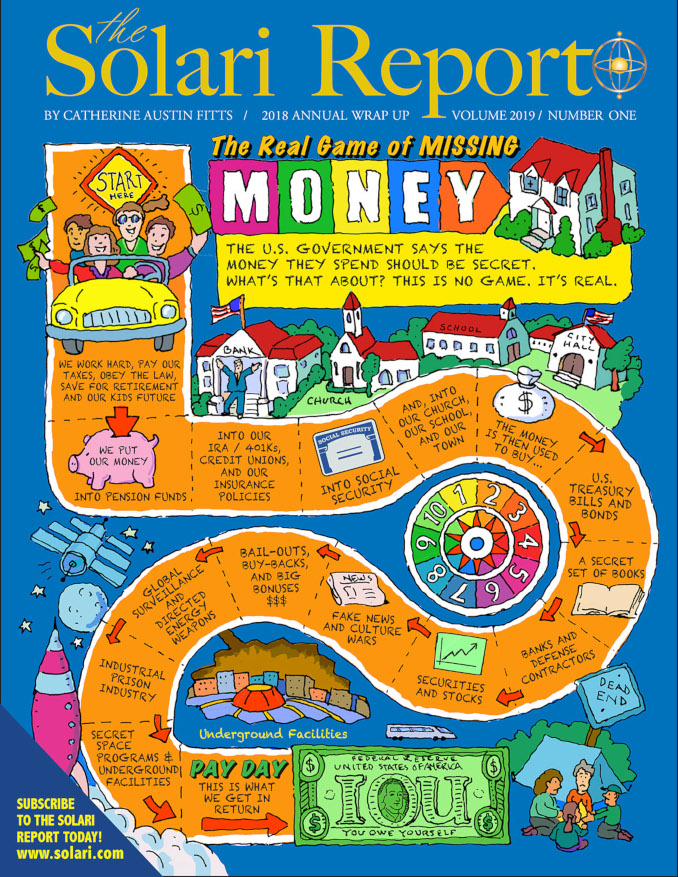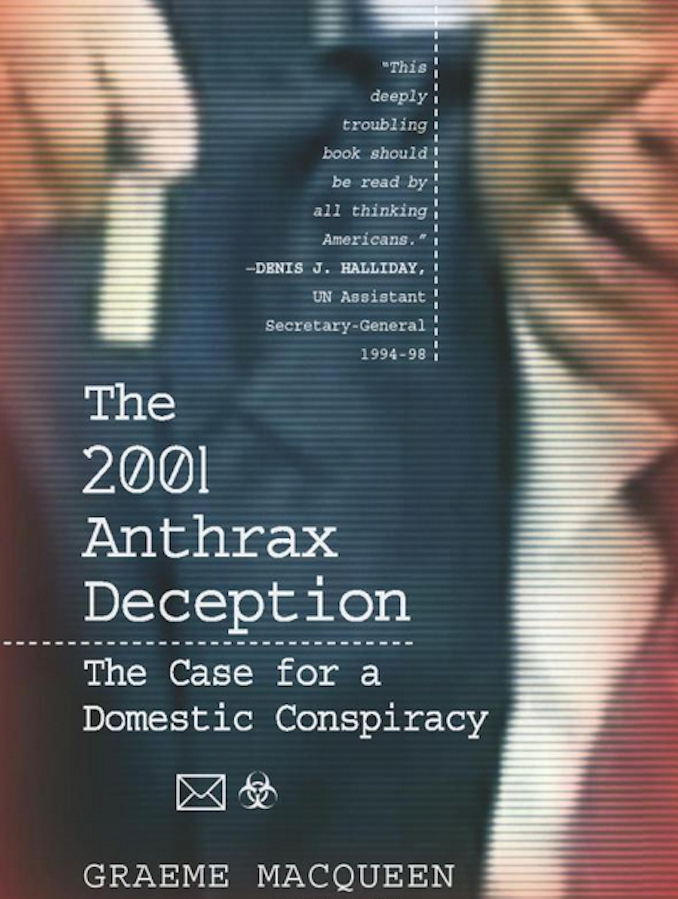By Matthew R. Hale, Attorney at Law
The issue of Zoom trials is not fading as the pandemic seems to be. In fact, it is causing a debate in the legal community as to whether or not to continue conducting Zoom jury trials and Court hearings. A rare public debate has broken out between judges in the United States District Court for the Western District of Washington. Its rare that judges air their differences in the public square. The debate centers around continuing Zoom trials and proceedings in Federal Courts, and exposes the level to which big tech is making its way into our justice system.
The opening salvo was an opinion published in the Seattle Times by senior judge John C. Coughenour, entitled, “What gets lost when Zoom takes over the courtroom.”1 In it, Judge Coughenour cautions the public on the use of Zoom to replace trials. He states, “The parties, lawyers and jurors participated in the solemn process of dispensing justice form the comfort and convenience of their home or office.” 2 He then goes on to argue against the expanded use of remote proceedings. In his argument, Judge Coughenhour argues that perhaps we should continue doing trials the way they have been done since Abraham Lincoln’s time. He cites to the issue of Zoom hacking and technology problems that remain legitimate issues. In addition, he makes a sobering warning:
“A juror participating remotely lacks another critical characteristic—empathy for all involved. While direct research on the topic is in its infancy, I cannot help but draw from the notion of a military drone pilot, directed to kill through the grainy lens of a video camera. As one operated in a 2015 video documentary by The Guardian (“Drone Wars: The gamers recruited to kill”), put it, “[y]ou never knew who you were killing because you never actually see a face, you just have silhouettes and its easy to have that detachment and lack of empathy for human life as it’s easy to think of them as something else.” A juror deciding one’s fate should not mete out justice through a similar lens.” 3
A week later, a rebuttal argument was published in the Seattle Times by senior US District Court Judges Thomas S. Zilly and Marsha J. Pechman, in an opinion piece entitled, “What the public gains by remote trials in federal court.” 4 In it, they seize on the notion of doing trials in Abraham Lincoln’s day stating, “In maintaining the rule of law, what ultimately matters is not the location but rather the dedication of all participants to provide justice. This commitment to timely providing a forum in which the rule of law may thrive is exactly why the federal court for the Western District of Washington has pioneered the use of Zoom to conduct trials and other proceedings during the pandemic and why remote proceedings should continue in federal courts.” 5
In other words, they are advocating for the continued use of Zoom to conduct court proceedings and jury trials. In their article, the Judges argue that there are many advantages of remote Zoom trials. Their arguments are based on 16 jury trials and 10 bench trials. They conclude in part, “We continue to try cases remotely while anticipating a return to the courthouse. Our experience, however, has demonstrated that virtual proceedings have benefits for the future. We have had greater juror participation and seen a reduction in costs to the court and the litigants.” 6
These judges are also featured on a podcast where they discuss their experiences with the virtual trial experiences and give advice in conducting Zoom trials. 7 They are heralded as “pioneers” in remote jury trials. At the time of the podcast, they had conducted nine jury trials, upon which they base their conclusions about the effectiveness and fairness of virtual trials.
In deciding whether to compel parties to conduct virtual trials, the judges describe going to the Ninth Circuit Court of Appeals librarians looking for authority to force parties to participate in Zoom trials. The conclusion made by Judge Pechman was “if its not prohibited then its allowed.” She goes on to explain that forcing Zoom trials has helped to clear her back log of cases, which is a problem plaguing Courts across the country.
In the podcast, they add the fact that all the exhibits are downloaded to another technology company’s platform—Box.com. All the exhibits in the trial are available to jurors, who can access the exhibits remotely via Box.com. On its website, Box.com states that it is “trusted by the world’s leading organizations” and lists organizations such as AstraZeneca, Allstate Insurance, Morgan Stanley, and the United States Air Force. 8
For hundreds of years, it had always been the practice that the Court Clerk logged all of the exhibits and maintained the copies of the exhibits and evidence for the jury. The jury then had access to the admitted evidence in the jury deliberation room, and the evidence stayed in the Court house. There, the jury was able to review the exhibits and evidence that they wanted to. There was no technology company holding the exhibits in a cloud, which allowed for remote access.
Judge Pechman also compares a Zoom trial to television, implying that the lawyer is putting on a television show for the jury. She says that the lawyers can control the space and the presentation much better than in a courtroom. She states that attorneys have to be prepared to present their case like a television production, saying: “It requires just like shooting a movie to take care that all those technical things are in place.” Later on, Judge Zilly advises lawyers to take care of and pay well their clerks and I.T. who help make things move seamlessly for those watching the “show”.
The fact that US District Court judges are debating publicly over the continued use of Zoom trials, means that this issue is quietly being debated across the country. Having judges publishing editorial pieces debating this issue in newspapers harkens back to the debate between the Federalists and the Anti-Federalists. Its important to watch this debate and decide to what extent Court’s and Judge’s are going to be allowed to fundamentally change the way trials are going to be conducted, as this process could redefine ancient notions of Due Process.
This issue will impact everyone who has an interaction with a Court. Recently, in a local court, a judge told me that the court intended to continue Zoom proceedings going forward even after the pandemic. She made the statement through a mask behind a clear plexiglass wall, with a sign that said, “Do not Approach the Clerk.” The courthouse was almost empty. I looked in courtrooms with large monitors on the walls and judges conducting hearings on large television monitors.
Its truly astonishing that a technology company brand named Zoom.com, could take over the judicial system in a little over a year. It makes one wonder what would happen if a case was brought against Zoom.us or Box.com. At any rate, this issue is leading to some of the biggest fundamental changes to the rule of law and due process in the United States since at least the Civil War.
Footnotes:
1 https://www.seattletimes.com/opinion/what-gets-lost-when-zoom-takes-over-the-courtroom/
2 Id.
3 Id.
4 https://www.seattletimes.com/opinion/what-the-public-gains-by-remote-trials-in-federal-court/
5 Id.
6 Id.
7 https://legaltalknetwork.com/podcasts/litigation-radio/2021/05/trial-by-zoom/
8 https://www.box.com
Related reading:
The Dawn of the Virtual Jury Trial and the End of Courtroom Justice








My own thoughts on this matter are ones of great concern. While it is true that technology’s key contribution to process is one of efficiency and possible cost reduction, efficiency is NOT effectiveness. In particular this fact plays large when it comes to the multidimensional aspects of courtroom human interactions. In the end, a Zoom channel is a very deficient channel for communications in life changing processes.
If you want to get technical about such matters, I am reminded of a statement made by my former boss, John Shoch, co-inventor of Ethernet. To paraphrase: “The highest bandwidth channel I know is a 747 airplane loaded with people planning to interact with other people. However the latency really sucks….”
Adding to this, my own studies in information theory of human interaction reveal that upon first encounters between people, a huge high bandwidth exchange and organization of symbol tables takes place not only in the verbal domain, but also in facial expression and the typically unseen but measurable aspects of the human energetic field. Once that exchange is accomplished, the unconscious tables of symbols can serve to significantly enhance subsequent electronic communications between the parties. However, those tables would need to be refreshed from time to time by renewed face-face encounter in order to preserve effectiveness of human communication.
I suspect that the process of 12 people or even a judge deciding the fate of another should not be done given the relative isolation that mere electronic communication yields in the absence of even minimal face to face encounters of the principals. This goes for education as well It makes Zoombies of a all of us and of our society…
`I served on a jury. Narcotics trafficking case. It was a life changing experience. I learned how wise citizens can be.
get enough evidentiary data into Box.com and enough judicial and jury rulings to determine the patterns, and maybe we can just have AI decide everything, without involving people in the process. summary motion via AI.
my mind runs wild with the possibilities. enough data on the behavior and mannerisms on lawyers and judges and we can have AI rendered holographic archetypes of these figures handling the zoom trial, kind of like the 90s show max headroom with the virtual newscaster.
the new startup can copyright these archetypes lawyers and hire them out to clients. what kind of lawyer do you need? grandpa aka Perry Mason? go getter young lady aka ally McBeal? maybe a softer mom type? that can also be decided for you based on data of previous trials. fret not, all lawyers are the same because they have access to the proprietary algorithm. AI already writes in the wall Street journal, why not go from text to visual and audio? and monetize?
I’m looking for the appropriate buzz word but not sure which fits. trust science? inclusion? disrupt the industry?
Equity! AI will bring equity!